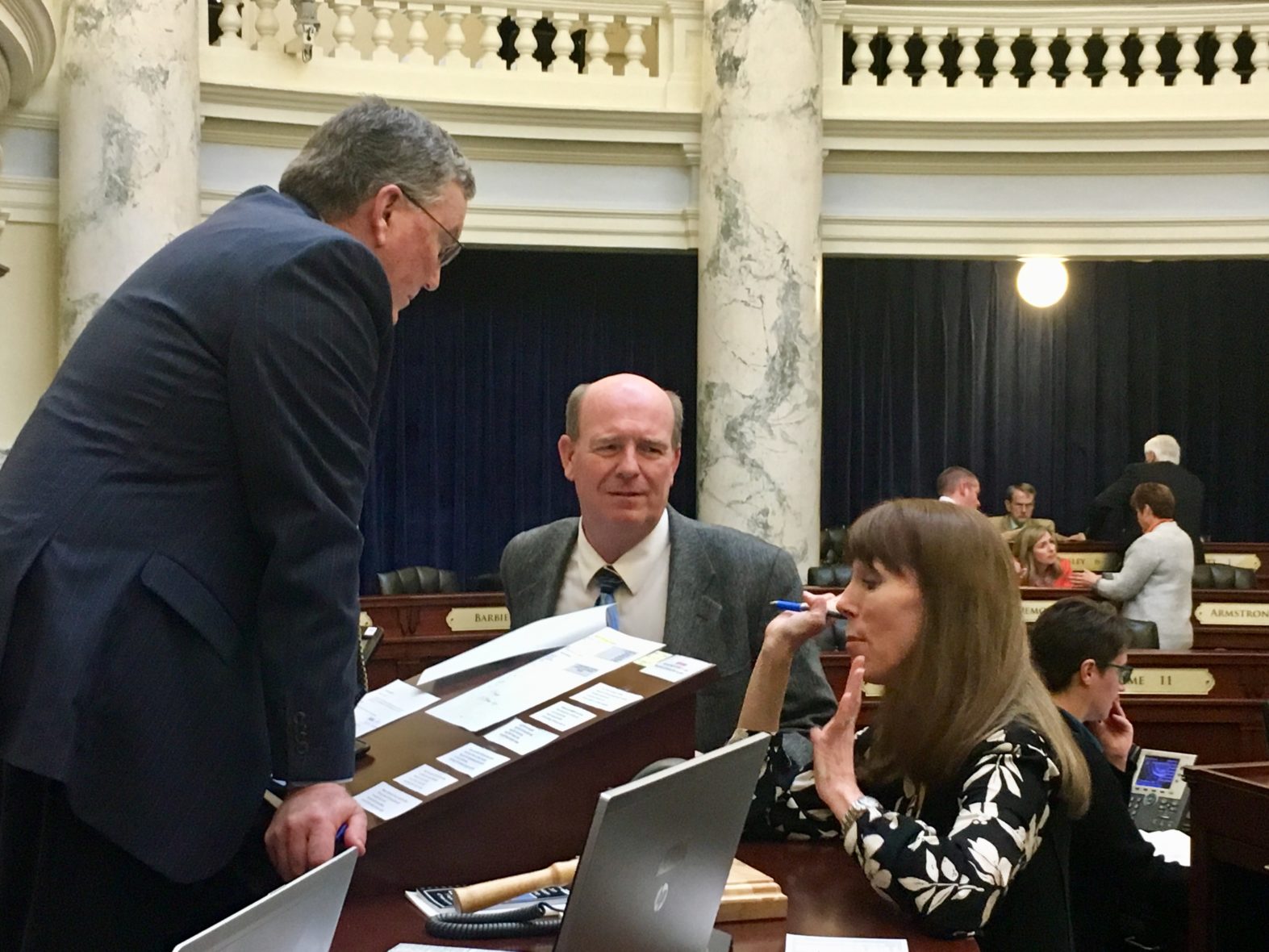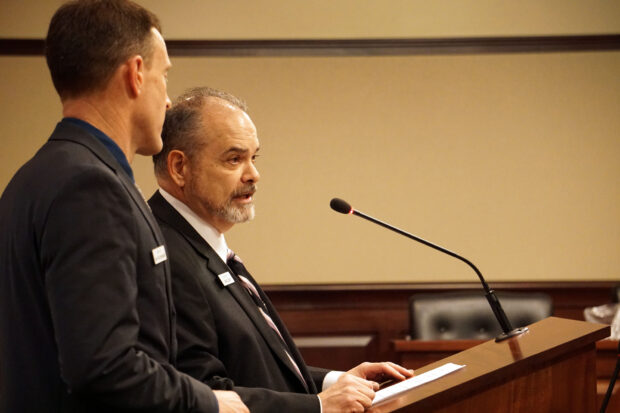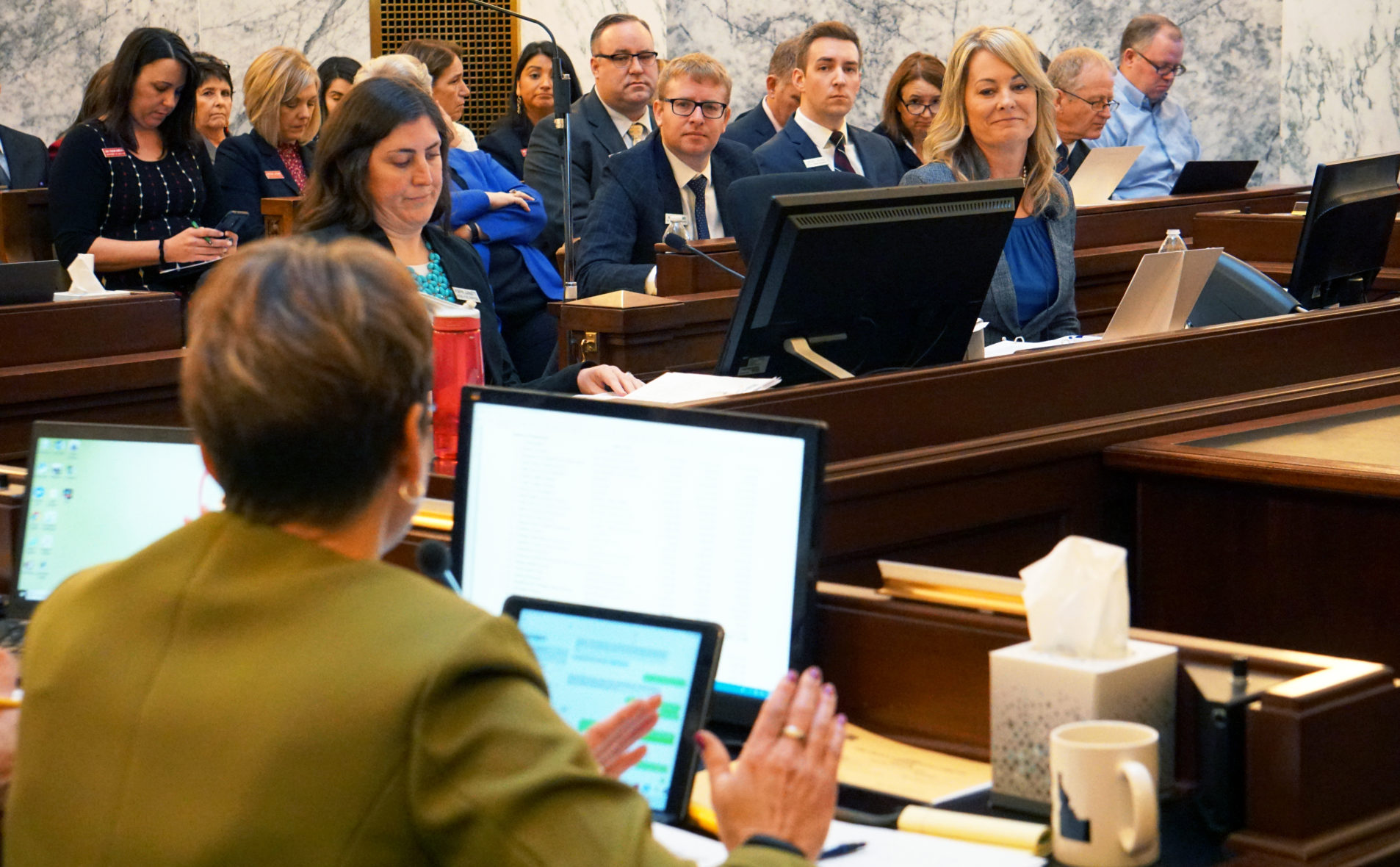
The 2019 Legislature — all 95 days of it — will not be remembered as an education session.
Lawmakers spent weeks mired in the debate over the voter-passed Proposition Two, and passed a Medicaid expansion law with work requirements. They ran several bills that would make it extremely difficult to get new voter initiatives on the ballot — only to run into a gubernatorial veto.
For education, it was largely a stay-the-course year. Lawmakers put additional money into teacher pay, literacy programs and college scholarships — all ongoing efforts. They set some big issues aside, starting with a reboot of the school funding formula.
Here’s a review:
So this happened …

“Funding Formula Lite.” It took a long time. And then it happened quickly. The Legislature coalesced behind “Funding Formula Lite.” This bill draws up student definitions — for groups such as economically disadvantaged students, English language learners and gifted and talented students. The details of this “definitions” bill matter. If and when the state rewrites its school funding formula, shifting to a student-based model, the state’s $1.8 billion public school budget will be carved out based on student demographics.
Pay raises for new teachers. Idaho’s minimum teacher salary will reach $40,000 — but it will take two years to get there. Gov. Brad Little promised to push for the pay raise during the 2018 election, but slowed down the rollout to spread out the $11.4 million price tag.
Career ladder, chapter five. With little disagreement, the Legislature committed to paying for the fifth year of the career ladder, a $250 million plan to boost teacher salaries.
Master teacher premiums. The Legislature funded the first year of a plan to provide $4,000-a-year bonuses to high-performing veteran teachers. The $7.2 million price tag is a rough estimate. The State Board of Education will review applications for the premiums.
More money for early reading. Last fall, 47 percent of Idaho’s kindergarten through third-grade students were behind in reading skills. Schools will receive $26 million to help these students catch up. Doubling this budget represents another first-year win for Little.
Advanced opportunities. This program just keeps growing. This year, the Legislature earmarked $18 million to help junior high school and high school students get a jump on college. And starting this year, some students will have the chance to put their allowance toward career-technical classes.
More money for college scholarships. Lawmakers put an additional $7 million into the popular Idaho Opportunity Scholarship. That should eliminate some of the unmet demand for college scholarships, but not all of it. Some 3,400 students are on a waiting list, the State Board of Education says.
Mastery expansion (sort of). State superintendent Sherri Ybarra got part of what she wanted here. The Legislature lifted the cap on the number of schools that can take part in a mastery pilot program — shifting to a learning model that allows students to advance through school based on subject knowledge. Lawmakers put no additional money into the pilot, however.
Charter school legislation. A bill to relax job requirements for charter school administrators — vetoed in 2018 — made its way into law this time around. Lawmakers also pushed through a bill to create a backstop for charter school building bonds, in an attempt to help charters save money on interest.
Teach for America. The Legislature OK’d a plan to make up to $200,000 in state funding available to nontraditional teacher training programs such as Teach for America. Supporters say it is a small step to address the state’s teacher shortage.
Immunizations. It was a mixed bag. Lawmakers added a 12th-grade meningococcal vaccine to the state’s list of recommended immunizations. But they also made it clear that parents can opt out of immunizations simply by turning in a letter to the school. Idaho’s immunization opt-out rates are among the highest in the nation — and rising.
Task force II. Little started the session by saying he wanted to put together his own task force to study Idaho education — a sequel of sorts to the group convened six years ago by Little’s predecessor, Butch Otter. Lawmakers put $100,000 into the Our Kids Idaho’s Future task force.
… and this didn’t happen
Funding formula. When it came to an actual, full-on rewrite, lawmakers couldn’t find the magic formula. They spent weeks working with lobbyists and education leaders, but no bill could even make it out of committee. And that’s after a legislative committee spent three summers studying the issue.
For now, Idaho’s 1994 vintage funding formula remains intact. But look for the discussion to continue, even before the 2020 session begins. House Speaker Scott Bedke — a member of that interim committee — said lawmakers will work in the off-season to come up with a plan that can pass the Legislature, and find support from the school administrators who will be tasked with making the formula work. “It’s a big transition, from the devil we know to the devil we don’t know, but we think we might like,” Bedke said Thursday.

KISS. Ybarra’s Keep Idaho Students Safe plan never got any traction. The centerpiece — a $19.1 million request for school safety grants — didn’t make it into Little’s budget, and legislators didn’t buy in either.
Guns in schools. Rep. Chad Christensen’s bill would have allowed anyone with an enhanced concealed weapons license to carry a gun in school. It never got out of a House committee.
Sex education. A bill to require parents to sign their children up for sex education classes passed the House on party lines, but stalled in the Senate. That means the old rules remain in place for 2019. Parents can still opt their kids out of sex-ed classes.
Pre-K. Another year, another round of disappointment for early childhood education advocates. A bill to create a voluntary state-funded pre-K program didn’t even get introduced in the House Education Committee. Idaho is one of only four states without state-funded pre-K.
‘Turnaround schools’ bill. The idea was to free up money — and provide extra help — for some of the state’s low-performing schools. The Senate approved the idea. But in a turnaround of sorts, the bill died in a lopsided House vote.
Teacher retention. Lawmakers talked about several ideas to address Idaho’s teacher shortage, to no avail. House Education rejected Ybarra’s teacher pipeline bill, which would have included a rural fellowship program and a certification and retention bonus. A rural teacher loan forgiveness program also went nowhere.
Private school scholarships. One of the most controversial education proposals from 2018 made only a cameo appearance this year. Rep. John Vander Woude brought back a bill to create a private school scholarship fund for at-risk students — financed through tax credits. It never received a full hearing this year. Meanwhile, an education savings account bill surfaced but didn’t get a full committee hearing.
